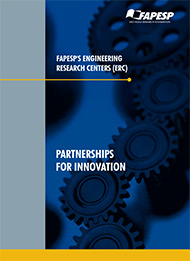FAPESP and Koppert launch the SPARCBio

04 de março de 2020
By Elton Alisson | Agência FAPESP – FAPESP and Koppert Biological Systems, a company that develops solutions for agriculture and has been in Brazil since 2011, have set up the São Paulo Advanced Research Center for Biological Control (SPARCBio). The initiative was announced on February 11, 2020, at the University of São Paulo’s Luiz de Queiroz College of Agriculture (ESALQ-USP) in Piracicaba, São Paulo State.
Investment in the research center is scheduled to total BRL 40 million. Its remit is to develop a new model for the integrated management of pests and diseases that affect tropical agriculture so that the activity can become more modern and sustainable.
FAPESP’s investment will come from its Engineering Research Centers (ERCs) program.
“This is the 13th ERC established by FAPESP under the program, which aims to leverage resources for research in partnership with private enterprise,” FAPESP Vice President Ronaldo Aloise Pilli said during the event.
Koppert will invest an amount that matches the sum disbursed by FAPESP. ESALQ-USP is also responsible for matching investment in the shape of salaries for researchers and support personnel, infrastructure, and facilities.
“Our job is to develop products, processes and knowledge with which to upgrade the integrated management of pests and diseases and to modernize the Brazilian agricultural model, which can be replicated for the same crops grown in other countries located in tropical zones,” said Danilo Pedrazzoli, Koppert’s industrial director in Brazil.
Some 50 researchers from several universities and research institutions in Brazil and abroad as well as undergraduate and graduate students will participate in the ERC.
The team will conduct interdisciplinary and multidisciplinary projects along five lines of research. One of these will entail prospecting for novel biological control agents encompassing both macroorganisms (insects, ticks and mites, for example) and microorganisms (such as viruses, bacteria and fungi).
“Among the aims of the research to be performed at the center is expanding the portfolio of biological products in Brazil, which is still small,” José Roberto Postali Parra, a professor at ESALQ-USP and SPARCBio’s principal investigator, told Agência FAPESP.
According to Parra, some 400 biological control agents have been discovered to date in Europe, while only approximately eight macroorganisms and 25 microorganisms are used for biological control in Brazil, even though it has run the world’s largest biological control research program for decades.
To increase the number of biological control agents in Brazil, the researchers plan to conduct more biodiversity studies, use automation for the large-scale creation of macroorganisms (otherwise a labor-intensive process), and develop new formulations for microorganism applications.
“Just as in the past 40 years Brazil has developed an agricultural model for tropical regions and become the leader of the pack, we now need to develop a biological control model for tropical regions,” Parra said.
Culture change
According to researchers who attended the event, Brazil has the largest biological control program in the world, currently covering 10 million hectares of cropland where mainly sugarcane is grown. The rate at which biological control is expanding is 20% per year, faster than in any other country.
For example, since 1984, Parra has studied Trichogramma galloi, a wasp that parasitizes the eggs of over 200 species of moths and caterpillars. Since 2000, T. galloi has been used to combat the sugarcane borer Diatraea saccharalis, one of the most harmful pests to the crop in Brazil.
“This year alone, the insect will be applied to 2 million hectares of sugarcane, with 91% being released from drones,” Parra said.
However, the researchers noted that increasing the use of biological control in Brazil presents many challenges. The challenges include promoting a change in the culture of agrochemical use, which is prevalent among many farmers, and treating vast croplands with biological control agents.
“In the Netherlands, where Koppert was founded, biological control is performed in greenhouses. That’s very different from implementing biological control in very large open-air plantations of sugarcane, corn, soybeans or coffee, for example, as is the case in Brazil. Our understanding is that the process is only just beginning,” Paul Koppert, the company’s CEO, said during the event.
Research at the new center will focus on integrated pest and disease management for soybeans, sugarcane, corn, cotton, coffee, citrus and vegetables.



